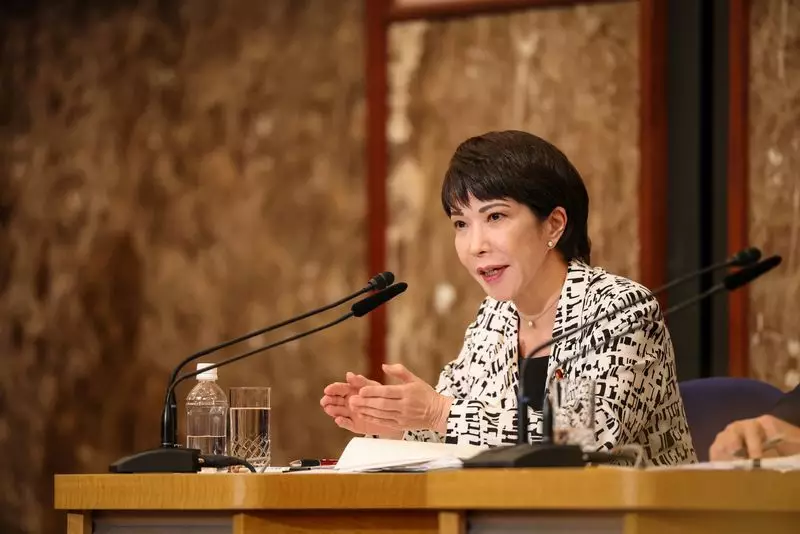As Japan grapples with the dual challenges of a fragile economic recovery and rising living costs, the debate surrounding interest rates has become increasingly urgent. Sanae Takaichi, a prominent figure in the ruling Liberal Democratic Party (LDP) and Japan’s minister responsible for economic security, has voiced strong opposition to altering the country’s extensive monetary policy. Takaichi’s position underscores a broader discussion about how the government should navigate its economic strategy in light of recent changes implemented by the Bank of Japan (BOJ).
In a recent press conference where she shared the stage with her fellow candidates for LDP leadership, Takaichi remarked, “Frankly, it was too early,” when discussing the BOJ’s decision to increase interest rates earlier this year. Her stance advocates for maintaining ultra-low interest rates to ensure the economy does not falter during its recovery. Importantly, her comments indicate a growing concern among policymakers that adjusting interest rates upward could stifle growth at a time when many sectors are still reeling from the impacts of both the pandemic and global economic pressures.
The BOJ’s approach to interest rates has evolved notably in recent months, particularly as it abandoned negative interest rates in March and subsequently raised short-term rates to 0.25% in July. This shift was predicated on the bank’s projection that the economy was on course to consistently meet its 2% inflation target. However, the implications of these moves carry significant weight for Japan’s economic landscape. With the central bank signaling further potential rate hikes under the right conditions, Takaichi’s call for fiscal and monetary support reveals her apprehension regarding the sustainability of such growth.
Furthermore, the conflicting narratives from candidates illustrate a broader ideological division among Japan’s ruling elite. Among them, Taro Kono, the minister in charge of digitalization, presents a contrasting viewpoint. His argument centers around the necessity for Japan to refine its approach towards fiscal health. Kono warns against the simplistic answer of increasing government expenditures or continuing generous subsidies, emphasizing that such strategies might fail to invigorate long-term economic growth.
As living costs climb, candidates within the LDP have proposed various spending packages to mitigate the financial strain on citizens. However, one major pitfall of these proposals is the lack of clear strategies to finance them responsibly. With Japan currently facing a staggering public debt that limits fiscal maneuverability, the strategies for funding proposed packages raise an essential question: how can Japan balance immediate economic needs with long-term financial health?
Toshimitsu Motegi, another LDP candidate, suggested addressing funding challenges by tapping into the substantial reserves earmarked for currency intervention. While this could provide a temporary solution, it doesn’t resolve the core issue of Japan’s fiscal sustainability in the face of rising interest rates and the associated costs of servicing its debt.
The upcoming leadership contest within the LDP, coupled with Prime Minister Fumio Kishida’s announcement of his decision to step down, sets the stage for transformative discussions about Japan’s economic future. As the central bank navigates its evolving role against the backdrop of changing global economic currents, the new leadership will need to exhibit a clear vision and strategic acumen to promote both short-term recovery and long-term fiscal stability.
Ultimately, the path forward will require a delicate balancing act: maintaining essential economic support while implementing sustainable fiscal policies that address Japan’s mounting public debt. Policymakers must prioritize economic dialogue that aligns monetary and fiscal strategies, ensuring that the initiatives pursued will not only benefit the present but also secure a robust economic future for Japan. The stakes are especially high in the context of rising global inflation and shifting economic paradigms, making the decisions of Japan’s leaders all the more critical.

